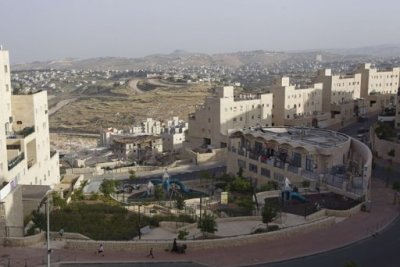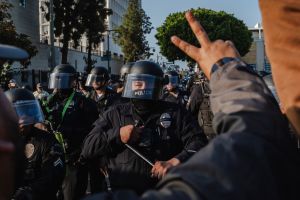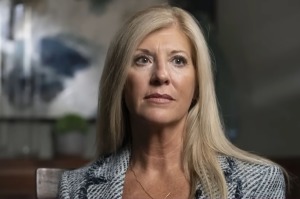Interview: Interpreting the Bible From a Middle Eastern Perspective (Part 4)

Editor's Note: This is the fourth and final part of a series examining different aspects of Bible translation, inspired by the recent controversy surrounding Wycliffe Bible Translators and its translation for a Muslim context. While The Christian Post series will not be focusing exclusively on the Wycliffe controversy, the topics in the series are related to the situation and are helpful to understanding the complicated nature of Bible translation.
An expert on Middle Eastern New Testament studies says he believes that many people raised and living in the Western world tend to have trouble fully interpreting the Bible without first understanding the culture where the stories from Scripture actually took place.
"The whole Middle East, whether they be Middle Eastern Jews or Middle Eastern Christians or Middle Eastern Muslims, they share a common culture," Dr. Kenneth E. Bailey, author of the book Jesus Through Middle Eastern Eyes, told The Christian Post. "They don't have cultural problems understanding the stories that Jesus told. We are the people that have the problem. What we have learned is not wrong, it's just that there is a layer of perception [missing]."
Bailey's area of specialty is the cultural background and literary forms of the New Testament. He was installed as Canon Theologian of the Diocese of Pittsburgh of the Episcopal Church in 1997. In 2003, at the invitation of the Archbishop of Canterbury, he participated in a Muslim-Christian dialogue conference held in Doha, Qatar.
Below is a transcript, edited for brevity, of Dr. Bailey's interview with CP, in which he discusses the importance of understanding the Middle Eastern culture and perspective when dissecting the Bible for interpretation.
CP: Describe your area of expertise briefly and why it's significant.
Bailey: I spent 47 years in the Middle East and discovered early on that any story told in any context, if you are going to try to figure it out, you have to know not only the language of the person who's talking, but you need to understand the culture of which they are a part. What I tell Americans is what if in the providence of God, Jesus had been a Navajo Indian and had told stories to his fellow Navajos? Well, if we translate what he had to say in English and we just read it as English readers (Americans or Brits) we would get a part of the story. The part that we understood would not be wrong, but if we really want to get at the deeper levels of the impact of what Jesus was saying we would have to ask the Navajos. Then, they would say well, at this point is kind of funny because right here people in the story are doing things that we as Navajos don't expect them to do and it's very surprising. So, there's a huge turning of a corner that you could have never have guessed that's happening at this point or whatever. That deeper level is what you can only penetrate when you get into the culture – not only the language, but the culture of the people involved.
So, the whole Middle East has 15 million Arabic speaking Christians and we've had nothing to do with them for the last 15-hundred years ever since a big church council called the Council of Chalcedon in 451. But they are out there. It is through their world, the commentary that they wrote in Syriac and then Arabic and then the life in isolated areas and in areas they continue to live becomes a grid through which we can understand deeper levels of what the text in Scripture is all about. That's what I spent my life doing.
CP: How did you discover you had a desire to study the Bible from a Middle Eastern perspective?
Bailey: My parents were missionaries in Egypt before me under the Presbyterian church and so I had some years of my childhood there. I came back to this country and went to junior high, high school, college, and seminary. And then I felt I had a head start [in Egypt], it's a tough language, let's see if the Lord wants us to go back. We applied, were accepted, went back and spent two years studying Arabic and then were assigned to an Egyptian evangelical church effort to try and teach the Egyptian village people to read their own language, which is the Arabic language. They spoke it, but they couldn't read it. For this literacy effort we would be resident in villages for up to a year and the villages were obviously the most isolated because those are the villages that don't have schools and nobody has a chance to read. Living in such villages is when I started to see stories of and about Jesus and in the Bible in general coming to life because these folks were living the way they have lived literally for thousands of years. For example, on one Sunday, the pastor was preaching on the story of the woman at the well in the fourth chapter of John and he turned to the women all of whom were seated on one side of the church and the men on the other, and these women, the only water they had was from the village well they brought themselves. And he said to them, "Now, this lady went to the well at noon. Do any of you go to the well at noon?" The universal answer, "No." "Why don't you go to the well at noon?" [The women answered:] "It's too hot." [Pastor:] "This woman goes to the well alone. Any of you women go to the well alone?" [Women:] "No." [Pastor:] "Why don't you go to the well alone?" [Women:] "It wouldn't be proper." [Pastor:] "So, what do you think about a woman who goes to the well at noon alone?" [Women:] "She's a bad woman."
Well, I'm sitting at the back, very proud of my sophisticated Western education and all of a sudden I am a student of these women. They understood parts of this story and I knew I couldn't read this in any Western language, which these women just instinctively understand. I was interested in doing advanced work in systematic theology at that point, but a switch threw at the back of my head and I said there is a layer of perception in these stories that we have not yet unlocked because we don't live in this culture. That launched me on a quest that's now almost 60 years that I have been on that quest.
CP: When you teach on the subject of Middle Eastern New Testament Studies what is your primary focus?
Bailey: The primary focus is the gospels and within that the parables of Jesus. For example, the famous parable of the Prodigal Son begins with the younger son asking for his inheritance when his father is alive and in good health. In Middle Eastern traditional culture this means "Dad, why don't you drop dead" and his father is supposed to hit him across the face and drive him out of the house. He doesn't. He grants the request. So, it is quite clear that Jesus is not taking an Oriental patriarch as a model for God. No self-respecting Middle Eastern father is ever going to grant that request. So, now we are talking about the nature of God and the nature of sin and about the necessity of God re-processing anger into grace. All of that doesn't become clear unless you get into focus the world that Jesus represented.
CP: For Westerners, what would you say are some of the most harmful misconceptions or myths about Bible translation when it comes to the Middle Eastern culture?
Bailey: The problem is not translation. We have good translation. Sometimes there's a problem of translation, but usually it's a problem of interpretation which is different. Usually the problem is that we just have traditionally read the story in a particular direction and we are so used to reading it that way that we need to be jarred into realization that our traditional reading of the text may not be accurate.
CP: Last year, in regards to a Wycliffe translation, there was some controversy over what's called 'divine familial' terms – how 'Son,' 'Son of God,' and how Father are translated, particularly in Muslim context. What is your opinion on that subject?
Bailey: I really don't think we are going to advance anywhere by changing the text of Scripture. I think we can fill in a lot of footnotes that can explain words that perhaps are misunderstood or that have been traditionally misunderstood. But I'd much rather go that way rather than fiddling with the text itself. I understand the people who are doing this, I understand why they are doing it and if they would want to say print up portions of Scripture to give to people who are inquiring about the faith coming from a Muslim background, sort of trying to get them started, that's fine. I have no objection to that, but to print an entire new testament, changing the language in order to accommodate, I don't think it's appropriate.
The authors of the New Testament used the phrase, "Son of God." They did not mean God got married. They did not mean God had sex with a woman. They did not mean that the woman gave birth. They do not mean that the eternal Word was not there until Jesus came along. No. We, like you, believe God has an eternal Word. For you (Muslims) that became something physical in a book. For us (Christians) that became something physical in a person and that's what we mean by "Son of God." If somebody wants to put a long footnote for a Muslim reader to understand what we mean by the "Son of God" that's fine.
CP: What is the most important thing Westerners should know when it comes to Bible interpretation for the Middle Eastern or Muslim world?
Bailey: They don't have a problem at the place where we do. This is their culture. The whole Middle East, whether they be Middle Eastern Jews or Middle Eastern Christians or Middle Eastern Muslims, they share a common culture. They don't have cultural problems understanding the stories that Jesus told. We are the people that have the problem. What we have learned is not wrong, it's just that there is a layer of perception. Once you get your mind around the culture then it's kind of like taking a black and white television and turning a switch and turning on the color. All of a sudden it's got depth, it's got perception, it's got attractiveness, it's got all kinds of really good stuff that you can't see until you get that switch thrown.




























